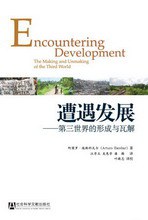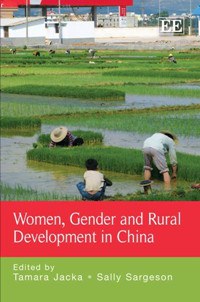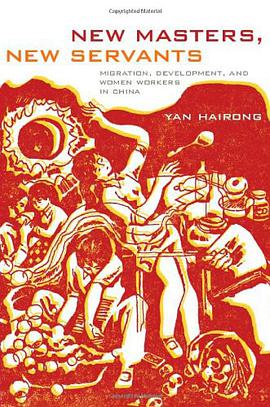遭遇发展 豆瓣
Encountering Development
作者:
[美] 阿图罗·埃斯科瓦尔
译者:
叶敬忠
/
汪淳玉
…
社会科学文献出版社
2011
- 7
《遭遇发展:第三世界的形成与瓦解》是一本颠覆发展理念的著作。作者埃斯科瓦尔在发展领域以专家与学者的身份工作多年,对发展的概念起源、所涉领域、工作方法知之甚详。就此而言,他是发展的“局内人”,但本书是从外在的、审视的、话语的角度重新诠释发展,试图探索前行的另一条通道。
该书质疑了发展,认为发展话语在很大程度上与殖民话语类似,都通过建立某套话语体系,剥夺了其他途径、其他思维方式出现和延伸的可能。该书质疑了发展工作者,他们耗费了巨额资金而民众的痛苦并未得到缓解。该书质疑了发达国家设立的形形色色的发展机构,它们提供的大量贷款,恶化了民众的生存状况,而为外来专家提供了优渥的薪金。就作者来看,对发展主义的抵制无异于一场重获文明尊严的奋争。而该书,也正是这种奋争之一。
这是一本极具震撼力的原创性著作,涵盖了一系列极其重要的话题。其最大优点在于并不将发展视为解决全球问题的常识性手段,而是一项历史和文化特异的计划。发展是一个陌生事物,它的出现并非自然而然。在关乎发展、现代性话语及全球不平等关系的讨论中,本书将是一本被广泛讨论和引用的主要著作。
——詹姆斯·弗格森(James Ferguson)
北美和欧洲的工业化国家何以在二战后成为亚非拉仿效的榜样?战后的发展话语如何创造了所谓的第三世界?为解答这些问题,阿图罗?埃斯科瓦尔揭示了发展政策如何成为不逊于殖民政策的控制机制,二者产生的作用同样深入而有效。发展机器制造的分类方式强大而有力,形塑了人们的思维,甚至鲜有对它的批判,而与此同时,贫穷和饥饿却普遍存在。但“发展”的根本从未被撼动,直至20世纪80年代,新出现的分析社会现实表征的方法才被用以分析第三世界。在本书中,埃斯科瓦尔采用了这些新方法,对发展话语和实践进行了近乎挑衅的分析,并以讨论后发展时代的其他可能前景作为全书的结尾。
任何有兴趣重新审视既有“发展”观的人,甚至从未质疑过“发展”的人,都应该阅读本书。经济主义的发展存在固有的问题,西方帝国主义对有悠久传统的文明进行了干预。所有意欲认真思考这两种现象的人都能从本书中获得启迪。
——洛德斯·贝内丽亚(Lourdes Benería)
埃斯科瓦尔认识到,对发展主义的抵制无异于一场重获文明尊严的奋争。这些文明已经成为试验对象,接受整套手术之后就会牺牲。它们或被送入博物馆,或被送至大学做解剖分析。对后发展时代进行构想,所代表的不仅是对隐蔽的统治结构进行抵制,也意味着赋予蛮荒世界本应拥有的权力,让其自行设计未来。对于这样一种开放的前景,埃斯科瓦尔似乎愿意冒险一试。
——阿希斯·南迪(Ashis Nandy)
该书质疑了发展,认为发展话语在很大程度上与殖民话语类似,都通过建立某套话语体系,剥夺了其他途径、其他思维方式出现和延伸的可能。该书质疑了发展工作者,他们耗费了巨额资金而民众的痛苦并未得到缓解。该书质疑了发达国家设立的形形色色的发展机构,它们提供的大量贷款,恶化了民众的生存状况,而为外来专家提供了优渥的薪金。就作者来看,对发展主义的抵制无异于一场重获文明尊严的奋争。而该书,也正是这种奋争之一。
这是一本极具震撼力的原创性著作,涵盖了一系列极其重要的话题。其最大优点在于并不将发展视为解决全球问题的常识性手段,而是一项历史和文化特异的计划。发展是一个陌生事物,它的出现并非自然而然。在关乎发展、现代性话语及全球不平等关系的讨论中,本书将是一本被广泛讨论和引用的主要著作。
——詹姆斯·弗格森(James Ferguson)
北美和欧洲的工业化国家何以在二战后成为亚非拉仿效的榜样?战后的发展话语如何创造了所谓的第三世界?为解答这些问题,阿图罗?埃斯科瓦尔揭示了发展政策如何成为不逊于殖民政策的控制机制,二者产生的作用同样深入而有效。发展机器制造的分类方式强大而有力,形塑了人们的思维,甚至鲜有对它的批判,而与此同时,贫穷和饥饿却普遍存在。但“发展”的根本从未被撼动,直至20世纪80年代,新出现的分析社会现实表征的方法才被用以分析第三世界。在本书中,埃斯科瓦尔采用了这些新方法,对发展话语和实践进行了近乎挑衅的分析,并以讨论后发展时代的其他可能前景作为全书的结尾。
任何有兴趣重新审视既有“发展”观的人,甚至从未质疑过“发展”的人,都应该阅读本书。经济主义的发展存在固有的问题,西方帝国主义对有悠久传统的文明进行了干预。所有意欲认真思考这两种现象的人都能从本书中获得启迪。
——洛德斯·贝内丽亚(Lourdes Benería)
埃斯科瓦尔认识到,对发展主义的抵制无异于一场重获文明尊严的奋争。这些文明已经成为试验对象,接受整套手术之后就会牺牲。它们或被送入博物馆,或被送至大学做解剖分析。对后发展时代进行构想,所代表的不仅是对隐蔽的统治结构进行抵制,也意味着赋予蛮荒世界本应拥有的权力,让其自行设计未来。对于这样一种开放的前景,埃斯科瓦尔似乎愿意冒险一试。
——阿希斯·南迪(Ashis Nandy)


